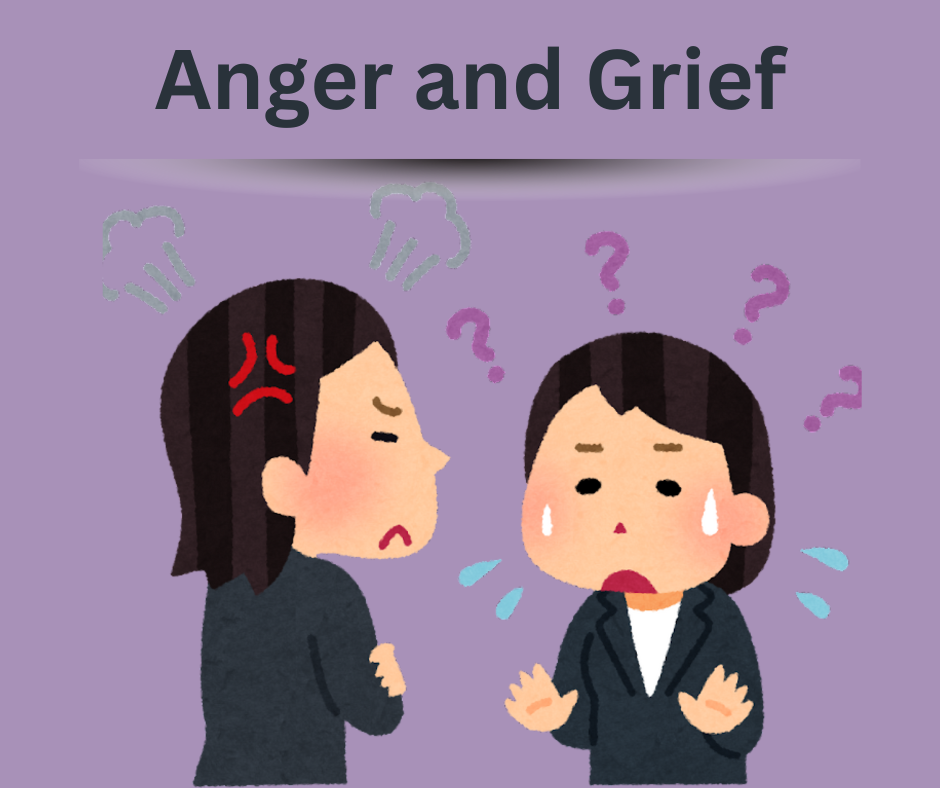I wonder if perhaps, to some degree many of us get angry after a loss. The word anger brings to mind struggling with something, enraged, mad, troubled, loss of control, wanting to be in charge and more. Sometimes, there are several emotions that seem as if they merge together.
When adding grief, loss and life together everything changes. Anger can be used as a survival mechanism after a loss to help an individual move forward for a while, but eventually the anger has to be looked at and put into perspective in order to move forward. Unaddressed anger has the power to expand and get expressed in inappropriate situations as life goes on.
Everyone has a choice of how to deal with life’s difficulties. By staying closely connected to anger and associated negativity such as: blame, shame, revenge, rage, disgrace etc. an individual may eventually lose the control they worked hard to maintain.
Have you ever been at the receiving end of someone’s anger? Have you wondered what the heck is going on here? Venting anger tells the world how very little control the person actually has. Most important to remember here is the buried pain of loss, sadness and what about fear?
Oh fear— stepping into fear of…
• what next?
• how to I go on with my life?
• I hurt so much and I do not want to burden others.
• Who am I now without you?
Releasing anger in a productive avenue is needed; such as voicing your concerns, anger, fears and more in a safe place that will not cause emotional harm to others. Writing your angry reactions on paper, causing tears to come with sad songs or movies; throwing rocks in the water or doing physical exercise that will use up any energy and release the anger. Seeking counselling might be an option for you!
Unreleased anger can serve to magnify the grief and loss experience. Scream, shout, punch a pillow; do what it takes to release the anger. Everyone reacts differently to loss. The situations surrounding the loss are also combined in such a manner that most often no other person will truly understand your unique experience.
Pause for a moment and reflect on this comment, “No other person will truly understand your unique experience”. How could they? No one else is you. Having said this, consider the number of times you may have thought why don’t they understand? Why don’t they “get it”!
Perhaps you come across in a strong, forceful manner to others. Maybe you are the person who hides in the corner and does not say anything, but your face betrays your angst. Are you a person who is someplace in between the two scenarios and depending on day either one could be on this emotional scale?
Pay attention to how others respond to you and then determine if your anger is controlling you. Being controlled by anger may also contribute to increased isolation from others. Seek additional help if needed in any situation involving anger and grief.
Barbara Gillett Saunders
Grief Counsellor/Thanatologist.

